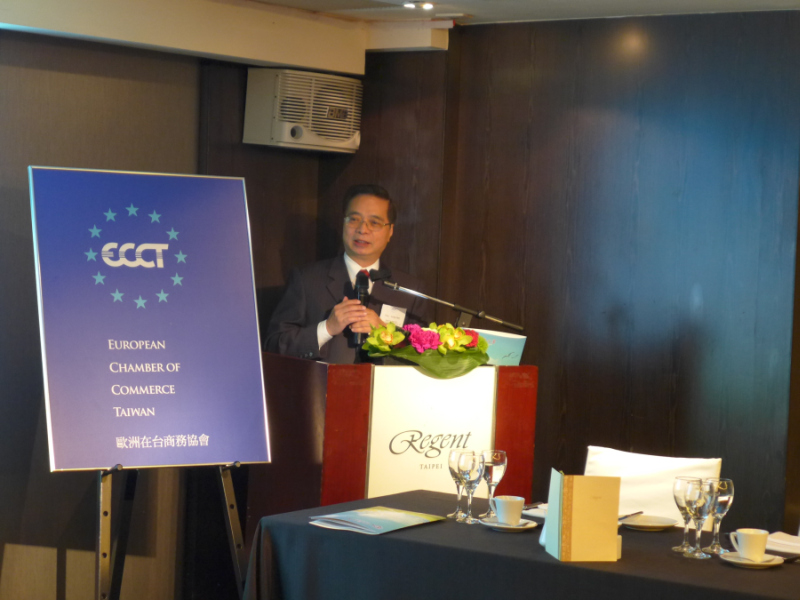Fighting fraud, corruption and collusion

On 15 January, the ECCT hosted a Premium Event lunch on the subject of fighting fraud, corruption and collusion with guest speaker Chu Kung-mao, Director General of the Agency Against Corruption (AAC) under the Ministry of Justice.
The AAC was set up in 2011 as an ad hoc organization under the Ministry of Justice to root out fraud and corruption. An important part of its brief is to build a framework and install adequate safeguards against waste, fraud and corruption. The speaker gave an update of the AAC's recent activities and how it is working to promote a clean and efficient government and regulatory environment in Taiwan.
Taiwan ranked 36th among 177 countries in the Corruption Perceptions Index released by Transparency International and fifth among 41 Asia Pacific Countries. Chu said that his agency is working to improve Taiwan's rankings over the next year. According to the report, progress has been made in recent years towards eliminating corruption. This is borne out by an improvement in Taiwan's ranking for both "Corruption among political leaders" and "Institutional corruption" . The ranking for how widespread the problem of bribery is by private sector parties was 11th while Taiwan ranked 7th in the category of "the extent to which corruption detracts from the overall business environment". The report also showed improvements in the categories of how effective the system is at prosecuting corruption when abuses are uncovered, how serious the government is about fighting corruption and how tolerant average citizens are of corruption.
The long-term trend for conviction rates is increasing. Since the Agency Against Corruption was established, the conviction rate for prosecuted cases is up 100%. But these results come with considerable costs. The costs of investigating corruption are considerable. From digging up information, gathering evidence to final judgment, takes a lot of time and resources.
In the past, the emphasis was on encouraging whistle-blowers to report corruption and criminal investigation. Now, the emphasis is on promoting ethical values in order to pre-empt corruption. For example when the ethics department is involved in the supervision of a trip abroad for research, it asks participants to explain the purpose of the trip in order to pre-empt them from participating in corrupt activities. In addition ethics officials now give advance warnings and use advocacy to replace whistleblowing.
The AAC's approach is to first educate officials on the core value of integrity. As corruption has the potential to seriously damage its image, civil servants are urged to uphold honesty and refuse corruption. This approach is then in turn strengthened by a "zero tolerance of corruption" policy environment in the civil service, backed up by external supervision and enforcement.
Besides its work with civil servants, the AAC is also promoting legal and ethical education at schools through various programmes targeted at students of different ages.
The AAC is also working to improve its investigation of corruption processes. The Government Ethics Units supervised the procurement specifications of street LED lights and found cases of bid-rigging, which led to contracts being cancelled.
The AAC is also working on eliminating influence-peddling (defined as any behavior involving the determination, implementation or non-implementation of specific events which causes illegal or improper influence on specific rights or obligations). Upon receiving a request that does not follow legal procedures, public servants are obliged to report all instances with the Ethics Unit within three days.
The ACC is planning to commission research about the feasibility for the formulation of a protection act for whistleblowers in the private sector to encourage honest business owners and private sector employees to expose corporate corruption and bribery.
From January to November 2013, 223 AAC Ethics Units held 6,140 educational activities for over eight million participants. In addition, 22 educational activities for school staff were held in 22 cities/counties with 4,613 participants.
Chu went on to outline details of several successful cases that exposed corporate corruption. He concluded his presentation by saying that there is more work to do to prevent corruption of all kinds and sincerely solicited the ECCT and its members' support, advice and assistance.
